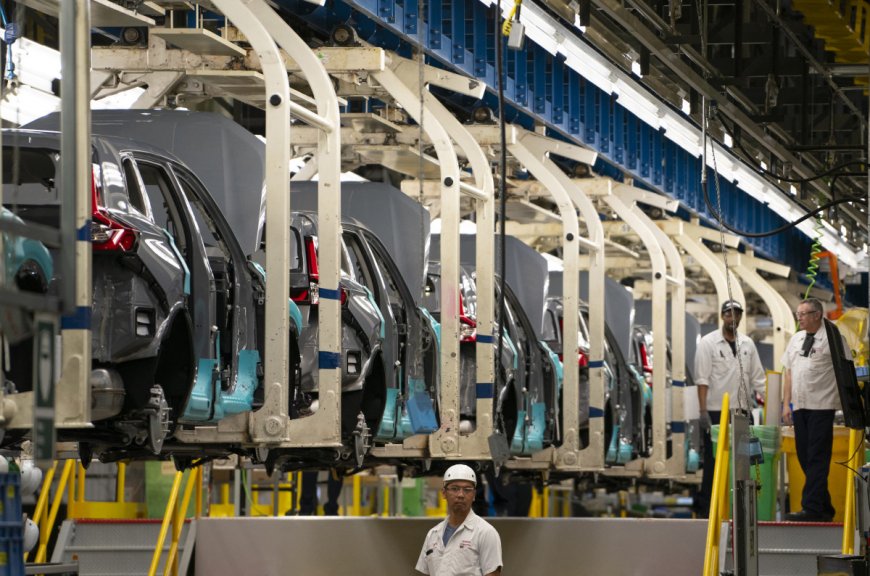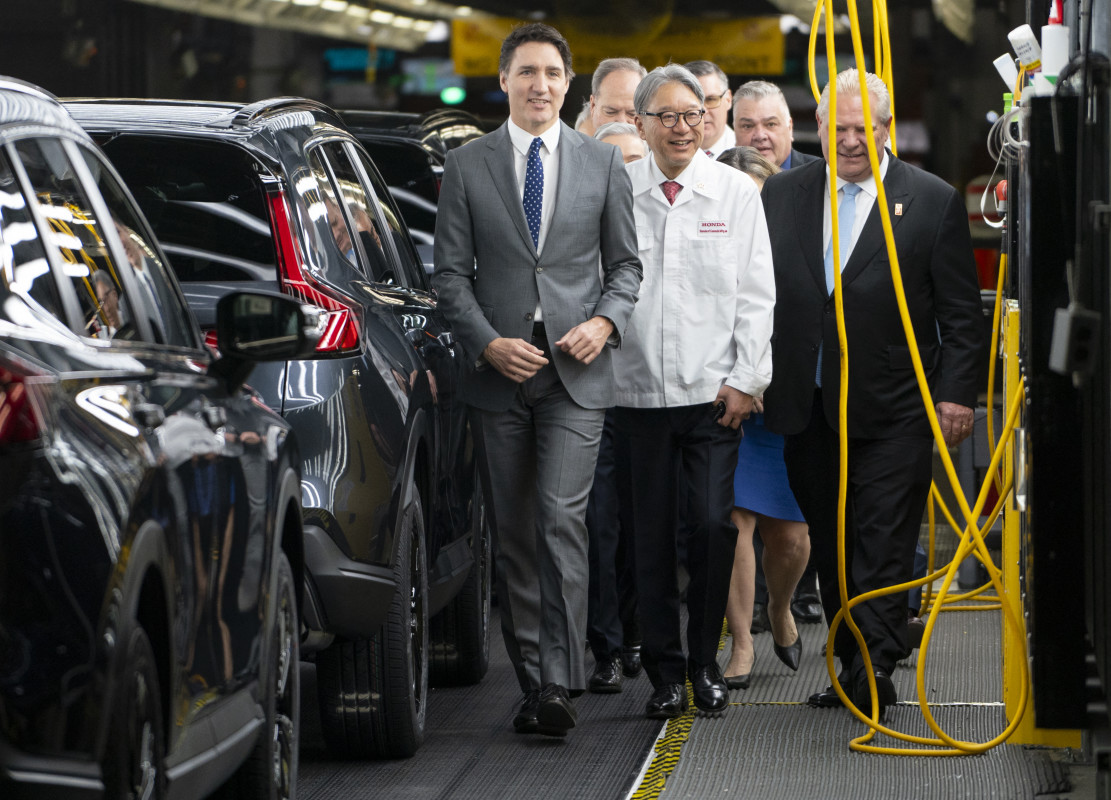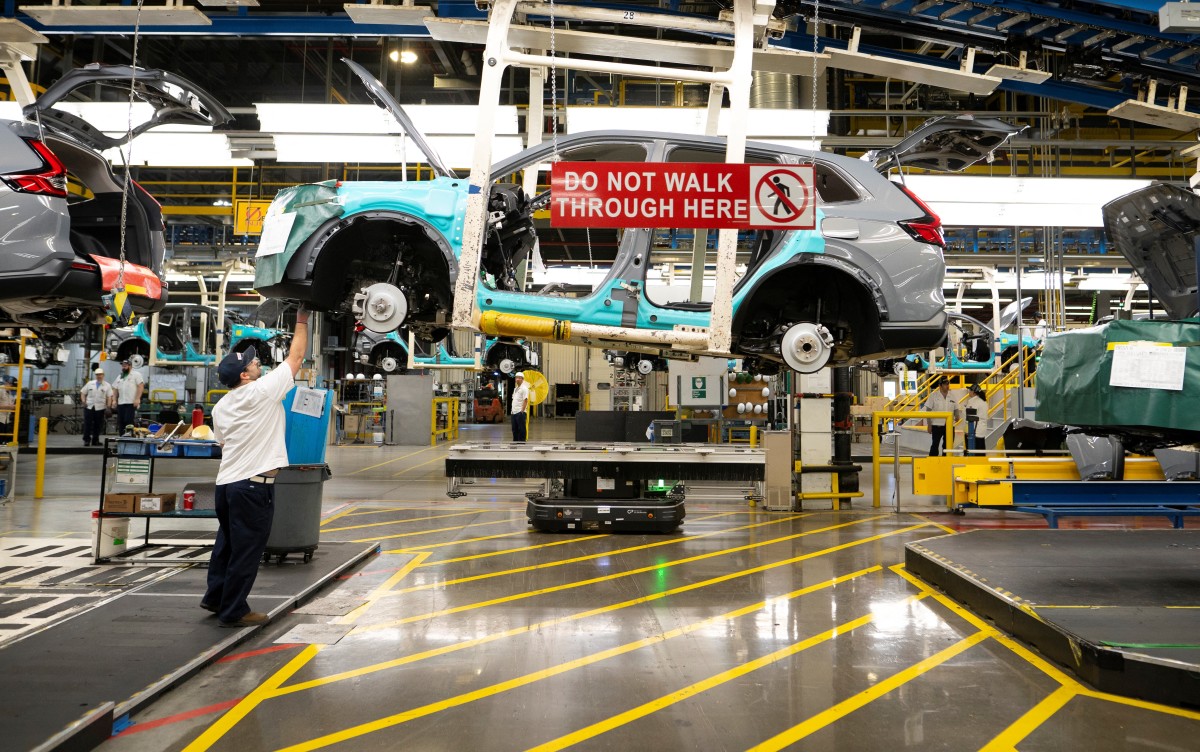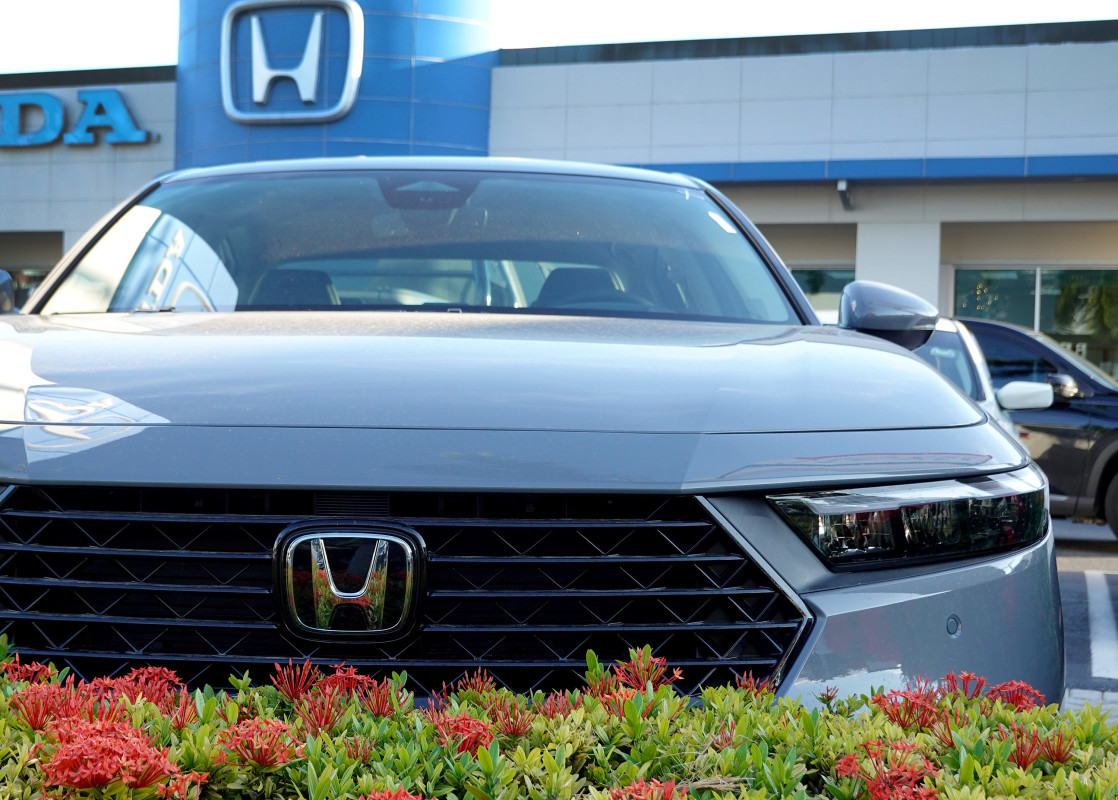Honda is betting big on North American EV manufacturing
The Japanese automaker's huge deal sets itself up for future EV production.

Honda (HMC) is preparing for a electric future, and for buyers in North America, it could mean new, cutting-edge EVs built in Canada.
Related: Mercedes' new big electric 4x4 is here to dethrone the Cybertruck's celebrity status
At an April 25 press conference at Honda's auto plant in Alliston, Ontario, Canada, Honda CEO Toshihiro Mibe, Canadian Prime Minister Justin Trudeau and Ontario Premier Doug Ford announced that the Japanese brand will be investing the equivalent of $11 billion in establishing the country's first "comprehensive electric vehicle supply chain" within the province of Ontario.
As per a statement from Honda, the investment will include new facilities such as assembly and battery plants to support what it calls "a future increase in EV demand in North America." 
Included in the $11 billion plan is an "innovative and environmentally responsible Honda EV plant", as well as an EV battery plant within its current presence in Alliston, Ontario. Additionally, Honda will be working though a joint venture with South Korean battery material & chemical company POSCO Future M Co., Ltd to build a cathode active material and precursor (CAM/pCAM) processing plant, and a separator plant with Japanese chemical company Asahi Kasei.
Honda expects EV production to start in 2028. Once all the facilities are fully operational, the automaker expects to pump out 240,000 EVs per year, as well as a capacity of 36 gigawatt hours (GWh) per year.
In addition to the 4,200 employees already at its current plants in Ontario, Canada, the automaker says that the new facilities will add a minimum of 1,000 new employees, and will also create a ripple effect of spinoff jobs, including in construction.
More Business of EVs:
- A full list of EVs and hybrids that qualify for federal tax credits
- Here’s why EV experts are flaming Joe Biden’s car policy
- The EV industry is facing an unusual new problem
As the providers of over CA$2.5 billion in tax credits and other incentives from the Canadian government, Canadian Prime Minister Justin Trudeau and Ontario Premier Doug Ford championed how much their contribution, in addition to Honda's multi-billion dollar investment would benefit the auto sector.
“Honda’s investment is a vote of confidence in Canada, in Canadian auto workers, and in our manufacturing sector,” Trudeau said.
“This is the largest auto investment in Canada’s history. Together, we’re creating good-paying jobs, growing our economy, and keeping our air clean.”
What does this mean for the U.S.?

Related: Honda's new Tron-style EV concepts showcase a radical electric near-future
Honda says that the new investment is one step forward toward its commitment to zero-emissions by 2040. Currently, its plans in the United States include a more robust rollout of hybrid vehicles, as well as an EV inspired by the '0 Series' Saloon concept, which is set to be revealed sometime in 2026.
Currently, the Japanese automaker produces one EV - the Prologue crossover; which is underpinned with General Motors' Ultium EV battery technology, and is currently produced at a GM facility in Mexico.
As of March 7, 2024, the Prologue is eligible for the U.S. $7,500 federal EV tax credit. According to federal regulations, eligible vehicles are not only required to have its final assembly to take place in North America (including the U.S., Canada and Mexico), but must not have any battery components made by a "foreign entity of concern," such as China, Russia, Iran or North Korea (DPRK).
With its latest investments and plans in place to produce battery components under a joint venture with South Korean and Japanese chemical and battery companies in both the United States (with LG Energy Solutions) and Canada, Honda is making sure its customers actually buy its EVs.
Related: Veteran fund manager picks favorite stocks for 2024
What's Your Reaction?



























































